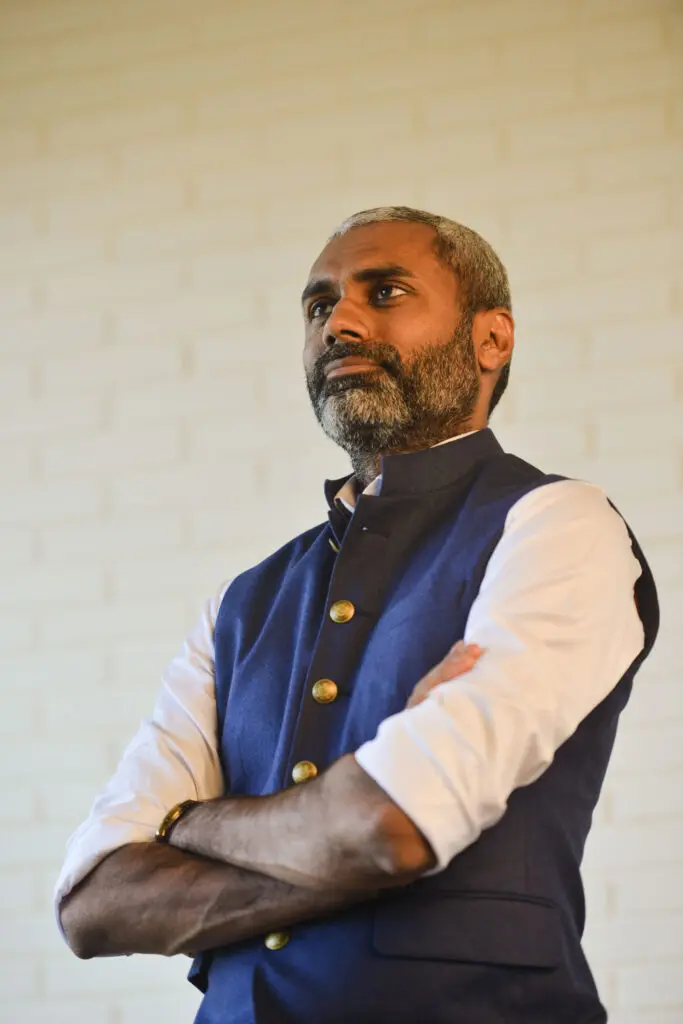
Balaji Srinivasan has been an investor (x GP @ a16z), entrepreneur (founder of Earn.com, Counsyl, Teleport & Coin Center) & operator (CTO @ Coinbase). He is someone who is a deep thinker & has always been 3-5 years ahead of the world, speaking the language of the future. He has founded, operated & invested in category creating companies across genomics & cryptocurrency, among other emerging markets. We were fortunate to host him as a masterclass speaker at EE21! Sharing below key insights from our conversation with him.
It felt fitting to kick the discussion off with a provocative question – how & why is Balaji the way he is? What life experiences have made him this way? Unsurprisingly, the response was equally provocative. Balaji mentioned that fundamentally, there are 2 types of CEOs. The first is the COO type – those who make sure the trains run on time; the second is the CTO type – those who live in the future and think about the constant change & evolution in society. While you do need both types, Balaji continued, he gravitates more toward the latter. He spoke of a mental model in which he constantly thinks about what’s broken at a societal level & how to fix it and also of his keen interest in identifying powerful secular trends that are fundamentally altering humanity e.g. a) Jio-fication of India; b) rapid adoption of applications that are revolutionizing the way we live – from meeting to mating! Being cognizant of these trends (or ‘curves’) can be extremely powerful in hypothesizing where we are headed.
rapid adoption of applications are revolutionizing the way we live – from meeting to mating
Switching gears, we touched upon the role of Asia & SEA in Balaji’s life. What prompted him to come back to Asia? What excites him about the land? In his response, he spoke of a pull & push factor. The pull was simple – the Asia opportunity even a few years ago was big and real! Now, the scoreboard is even more telling with India ranking high on metrics such as number of online users, global GDP contribution & number of startup unicorns. He continued by stating that an obvious recipe for billion dollar businesses is that the world has gone remote while India has gone online – democratizing opportunity for anyone from anywhere.
The push factor was grounded in his belief that the West is in decline. No founder should feel the need to move to or look up to the West. What we (as a society) must instead look up to is global technology e.g. getting to Mars, trans humanism & decentralized platforms like cryptocurrency.
“If countries could be compared to movies & shows, the West would be Black Mirror (the Netflix series) & India would be Super 30 (the movie)”
Balaji is a very powerful systems level thinker – someone who is able to connect dots between seemingly disparate subjects like science, technology, art, history & psychology. An example of this is his vision of the future – anyone would be able to move anywhere without really moving there; jobs, citizenship, romance, among many other aspects of human behaviour, will thrive online; counties would be pushed to think about ‘content marketing’ as a means to lure global citizens – e.g. Paris will be known for its art, culture & food. A provocative way to think about civilization as we know it!
We probed further to learn more about Balaji’s mental models – what gave him clarity in the early days of crypto & genomics that these markets would become big? The response was succinct & insightful – product is merit, distribution is connections. Distinguishing & decoupling the two is extremely important – engineers are too prone to down weighting distribution (‘because this is a great product, it will get great distribution’) & institutions are too prone to up weighting it (‘because this has great distribution today, it will always continue to do so’). Both of these are conceptual failure modes. Understanding this relationship in the context of emerging categories helped him identify where we are (as a society & ecosystem) in the adoption & technology curve and what the trendline looks like. He also spoke of the 6P framework for evaluating early ventures (especially category defining businesses) – Product (what are you selling?), Pricing (at what price?), Person (who’s buying?), Purpose (why are they buying?), Priority (why buy now?), Prestige (why from you?). These 2 mental models (distribution vs. product & 6P framework) helped him build the required conviction in new categories.
We pushed further in the same vein – how does Balaji balance abstraction vs. not losing sight of onground reality? How can founders uplevel on abstraction but still remain detail oriented? Know thyself, was Balaji’s quick response. He added that identifying people with complementary skill sets and keeping them in your orbit is one way to ensure the balance holds. As a CEO, he continued, you need to be a tremendous critic of everything around you yet be an inspiring optimist who is in constant pursuit of the solution and has a bold vision of the future.
As a CEO, you need to be a tremendous critic of everything around you yet be an inspiring optimist
Lastly, we probed into Balaji’s ability to be thick skinned yet being open to learning & taking feedback – being early to trends & living 3-5 years ahead of everyone else, often invites criticism and can result in one being misunderstood. How do you power through that & keep learning? In his response, Balaji spoke of a social network supply chain – you are at the ‘core’ and people around you (employees, investors, friends, family) are ‘nodes’ at varying distances from the core. He further elaborated that each ‘node’ has a different capability to read/write different ‘softwares’ ( information, stories, influence) & its critical to understand this mapping. Once conceptualized, one can move the nodes around (also remove/add new ones) to robustify your social network supply chain which can eventually help you weather most storms. Entrepreneurship is very unlike school: it’s highly competitive – your success is viewed by someone as their failure. Accordingly, one must know their allies, enemies & victory condition! And if you aren’t up for a fight, you might be better suited to become an employee, Balaji concluded.
Authors




